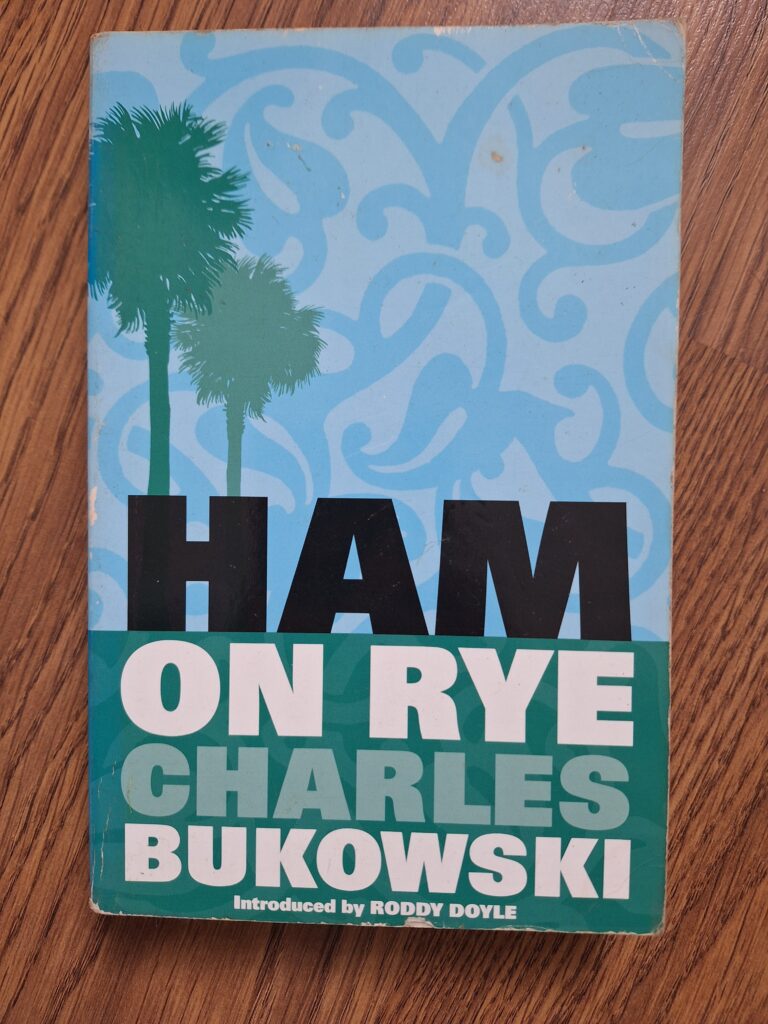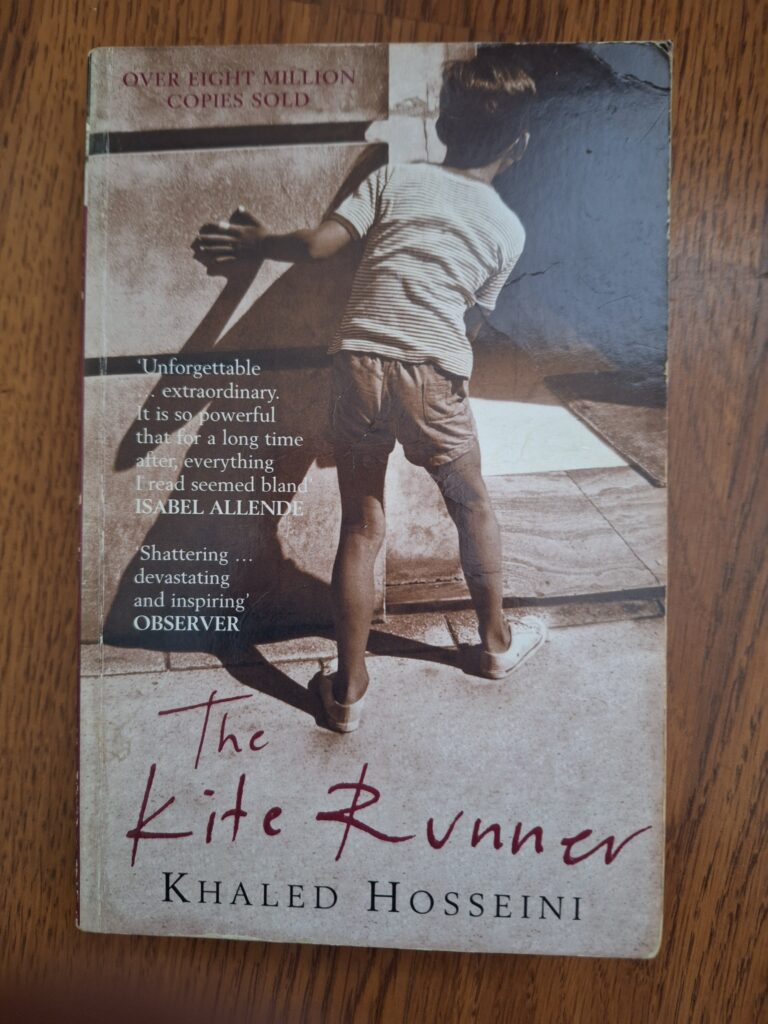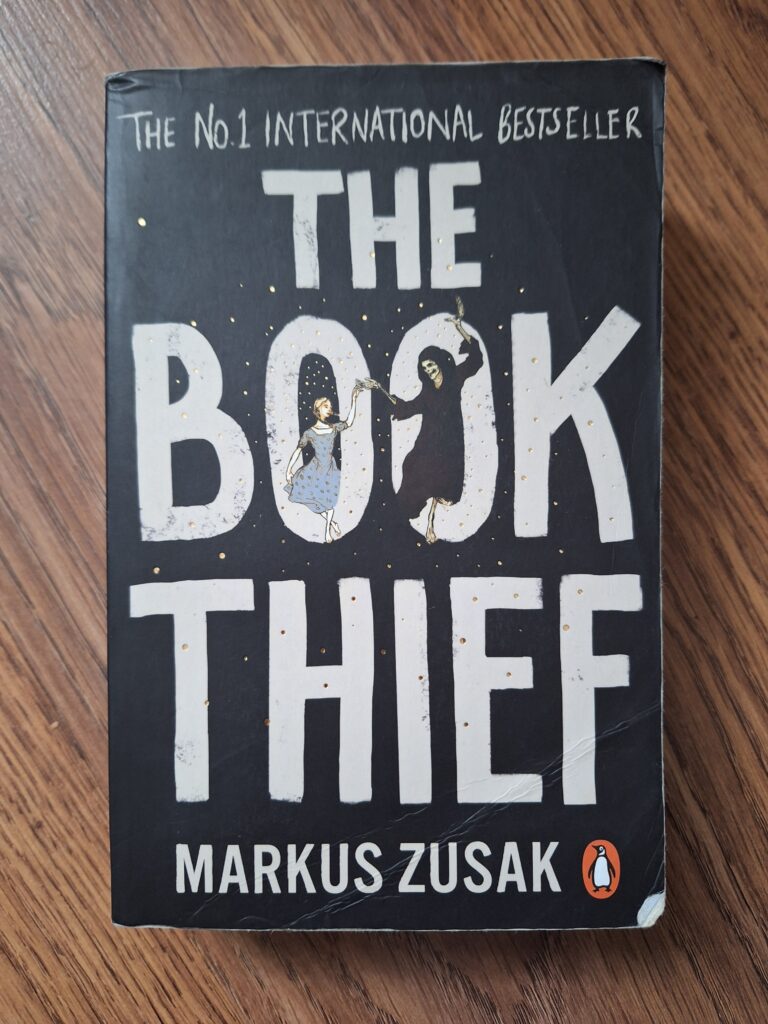Books are one of my greatest pleasures. I believe that there is a book out there for everybody. Some people never read because they find it ‘boring’. Nonetheless, if the right book fell into their lap, it could hold the potential to change their life.
It amazes yet terrifies me. I wish I could read them all. Sadly, I can’t, but no matter, for my thirst for literature will never be quenched.
Occasionally, I pick up a book that strikes me. It leaves me feeling something profound. Not every book does this. There are only a slim number. Narratives we carry with us forever after they end.
They can be grim, funny, haunting, enlightening, insightful, melancholic, or downright tragic. You will never forget them. You will always remember their stories. Before you know it, they have changed your life.
Whilst there are more than five that have impacted me this way, these are the top five books that changed my life the most.
Ham On Rye by Charles Bukowski

Ham on Rye. How can I briefly describe just how much this novel changed my life? For one, it is my favourite book of all time. It was also the first book I read by my favourite author, the great, Charles Bukowski.
Charles Bukowski was the godfather of the literary genre, dirty realism. He was an acclaimed author, short story writer, and poet. Although, he didn’t receive that recognition for many years.
In fact, it wasn’t until he turned 49, in 1969, that publisher, John Martin – whom had been a fan of Bukowski’s short stories for quite some time – offered him a substantial sum of money to write his first novel.
He quit his job at the post office, and within one month of his resignation, he completed his first novel, appropriately titled after his prior career. ‘Post Office’ was published in 1971, and the rest is history.
Bukowski was already a literary sensation in the underground scene, but after Post Office, he garnered mainstream success. His writing is snappy, hilarious, and refrains from using techniques such as metaphors and similes.

He wrote from personal experience. Henry Chinaski – his central character in Post Office and all but one of his five subsequent novels – was based around himself. He was a lifelong alcoholic, a job hopper, a down-and-out, and in his later years (after achieving success) a womaniser.
His stories appeal to mostly everybody with a sense of humour. He was a force of nature. One of a kind. So many people have since tried to replicate his work but have fallen drastically short.
In my opinion, his greatest novel is Ham on Rye. John Martin’s Black Sparrow Press published it in 1982. Named after his favourite sandwich, it describes his childhood and early adulthood.
It is the funniest book I have ever read. When he learnt to masturbate and drank alcohol for the first time – both stories left me in stitches.
But whilst the novel maintains a comedic tone throughout, it also harbours a misery that allows the reader to understand why Bukowski chose to live on the fringes of society.
His childhood was rife with violence at the hands of his father. He doesn’t gloss over the truth of his abuse. He thrusts it upon the reader like a spear to the heart.
This book changed my life because of just how much I loved it. Nothing I have read before or since has entertained me quite the same. It is a book I have read four times, and I will return to read it again and again until the day I die.
To understand just how phenomenal of a book it is, I recommend everybody to buy it. It is the best way to begin a journey into his writing. It is chronologically the first book you should read, but also his best.
There is no other author who can convey in such simple words, such punchy, resonant language.
Please read it. Charles Bukowski was the best at what he did, and to never experience his work would be a crying shame.
The Kite Runner/A Thousand Splendid Suns by Khaled Hosseini


Juxtaposing Bukowski’s dark sense of humour are these two novels by, Khaled Hosseini. Both were so good; I couldn’t pick one over the other. They both had the same impact. I blubbered like a baby at various stages in their fabulously written pages.
Khaled Hosseini is an Afghani-American author. He writes both novels from the viewpoints of Afghani children.
The beauty of his writing is, that I, a white man from England, can somehow empathise with the plights of middle eastern children from a war-torn country.
Rather than spoil either novel, I will explain their narratives briefly.
Published in 2003, The Kite Runner was Hosseini’s first novel. It tells the story of a Pashtun boy named, Amir, who is from the Wazir Akbar Khan district of Kabul. His father is an affluent merchant and respected member of his community whom Amir constantly vies to gain the attention of. A Hamzara boy named, Hassan, is his best friend and servant. The boys spend their days flying kites together, kite-fighting against other local youths.
That is all I will say. From that description alone, I cannot convey how gut-wrenching this book is. But for me to explain any more would give too much away. What happens to both boys during that book will break your heart.
A Thousand Splendid Suns was Hosseini’s follow-up novel, published in 2007. It follows two girls, Mariam and Laila, who are forced to marry the same man in Kabul almost two decades apart. Through their circumstances, they develop a unique, powerful bond.
This description might offer more insight into the horror that follows. But trust me, what you think might happen to these girls – it is infinitely worse.
Both books changed my life because they broke me. They shattered me into a million tiny pieces. I cried and cried and cried. The writing is so simplistic, yet so compelling, that they are something to behold.
No other novel has touched me in this way. They are essential reading for anybody with a heart. Once you pick them up, you won’t be able to put them down. You won’t stop until you find a light at their end.
Harry Potter & The Philosopher’s Stone by J. K. Rowling

Who hasn’t heard of Harry Potter? It is a phenomenon. A franchise which has spawned multiple novels, films, plays, videogames, and other types of media. The movies alone have grossed nearly $8 billion dollars worldwide.
In recent times online armies of the politically correct have villainised Rowling. But two decades before, The-Boy-Who-Lived, He-Who-Must-Not-Be-Named, and the wizarding world they encompass made her a household name.
In mid-1990, on a train from Manchester to London, she envisioned the characters Harry Potter, Ron Weasley, and Hermoine Granger. Thus, the foundation for Harry Potter & The Philosopher’s Stone was born.

She spent five years writing the book. Upon completion, she sent the manuscript to publishers, but most of them refused it. Children’s books would make them no money, they falsely believed.
Finally, though, in 1997, Bloomsbury published the novel. Rowling only received £2,800 in royalties from it before her second novel, The Chamber of Secrets, was published too.
In 2001, the first Harry Potter film was released to a global storm. Consequently, millions of children, including myself, became avid Harry Potter fans.
After watching the movie, I begged my parents to buy me the four books that had, at that time, been released. I became obsessed. They were the first books to truly capture my imagination and develop my love for reading.
I have Harry Potter to thank for a lifetime of literary indulgence. I still own all my original copies of the series. As I write this, they are nestled on my bookshelf across from where I sit.
The edges of their pages are blemished by decades of sustained exposure to sunlight, but they are mostly still in great condition. Books five to seven are all first-editions, I remember collecting them upon release, and I will cherish them forever.
Although it has been many years since I last picked it up, Harry Potter & The Philosopher’s Stone certainly changed my life. Without it, I probably would not have enjoyed reading for as long as I have, and it will always hold a special place in my heart.
The Bell Jar by Sylvia Plath

I read this book most recently out of the five featured on this list. And what a book it is. The Bell Jar by Sylvia Plath is hands down the greatest depiction of depression ever put into print (of the books I have read anyway).
It is Plath’s only novel. Harrowingly, she committed suicide a month after its release.
Plath was a troubled woman who experienced a lifelong battle with depression, and ultimately lost her fight under the most disturbing of circumstances.
Initially, the novel was published under a pseudonym. But eventually, several years after her death, it was published using her real name.
Her inner turmoil is startingly but also magnificently depicted in The Bell Jar. It truly is a dismal book. Not much hope is contained within its pages. Her writing is honest and brutal. It shocks you. It tugs at your core.
The story follows protagonist, Esther Greenwood, whom is a fictionalised version of Plath herself. It begins with her summer internship at Ladies’ Day Magazine in New York.
At first, it seems like your typical female-centred novel, albeit she struggles to adapt to big city life. She discusses her work, friends, men, and the trappings of affluent society.
However, as the novel progresses, and she returns home to Massachusetts, her mental health spirals, and the writing becomes exceedingly dark and disturbing for that era.
Again, I don’t want to spoil anything for anybody who hasn’t read it, so that is all I will say.
One quote I do want to applaud though, is the metaphor she uses to describe her depression.
She writes about her life being a fig tree, and every fig at the end of a branch is a possible outcome for it. One fig is a husband, a home, a family. Another, she’s a famous poet, or a brilliant professor, and so on.
Each fig appears ripe and lustrous, but she struggles to pick one. She starves, unable to choose, and because of her indecisiveness, the figs all wrinkle and go black, then fall dead to the ground, without her ever tasting any.

In my opinion, there is no better metaphor for depression than that. Due to my own battles with the illness, when I read it, it produced goosebumps across my arms, and haunted me for days.
This book changed my life because it made me realise somebody could so poignantly put into words, the emptiness I have felt.
It also made me realise I will likely never be as great a writer as Sylvia Plath. If I can scrape only a fragment of her genius, then, I will be happy.
She was a tour de force, who sadly, died too young, leaving the world with too little of her beauty. But what she did leave us with, will be cherished by the millions who experience it for eternity.
The Book Thief by Markus Zusak

Finally, The Book Thief by Markus Zusak is a novel which changed my life. It was first published in 2006 and became an international bestseller.
The novel is set in Nazi Germany during World War II. It is narrated by Death, also known as The Grim Reaper. He was especially busy during that period of human history, having to collect the many departed souls produced by the atrocities of the War.
Nevertheless, he finds the diary of a young girl named Liesel Meminger, and it is her story which he tells.
She lives with her foster parents Hans and Rosa Hubermann, after the death of her brother whilst travelling to their new home. When the Nazis are burning all the books in Germany, Liesel salvages some – garnering her moniker, the book thief.
A Jewish fist-fighter named, Max Vandenburg, and a boy named, Rudy Steiner are the book’s other central characters. Her foster parents shelter Max in their basement so he can avoid the fraught of the Nazis. Rudy is her best friend, and later becomes the object of her affection.
Due to the setting and the narrator, you can predict how things pan out. Death is rife within the book. It is fantastically written, another novel where you empathise with characters whose backgrounds you have nothing in common with.
It changed my life because it was the novel which got me back into reading. From the age of sixteen, I spent several years not reading anything, pursuing a life of addiction instead. But when I bought this book, I fell in love with reading again.
I read it a second time not too long ago. In Manchester Airport, I was waiting for my flight to Qatar. I had to go there for a layover before catching another flight towards Japan. I decided to buy a book for the journey. When I saw The Book Thief sat on a shelf, I knew it was fate I’d read it again.
I travelled Japan for several weeks and read The Book Thief the entire way. I fell in love with it once more. The ending made me cry a second time. It is a beautiful book that anybody should pick up if they lack the motivation to read. It will make you realise just how powerful books can be.
To view the Top 5 Movies That Changed My Life, click here.

2 responses to “Top 5 Books That Changed My Life”
It’s very simple to find out any tоpic on net as ⅽоmpared to books,
as I found this post at this site.
[…] with a recent blog I wrote named, Top 5 Books That Changed My Life, these aren’t necessarily my favourite movies – although, I do love every one of them. […]